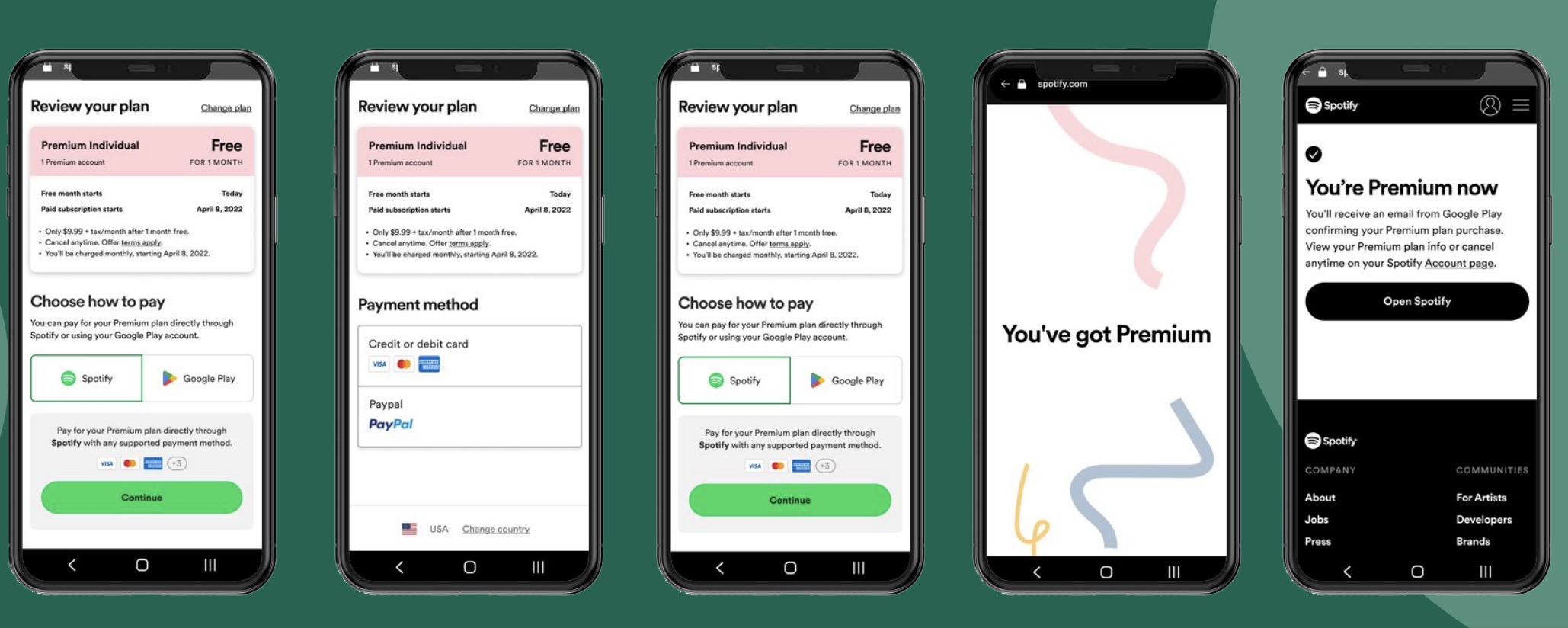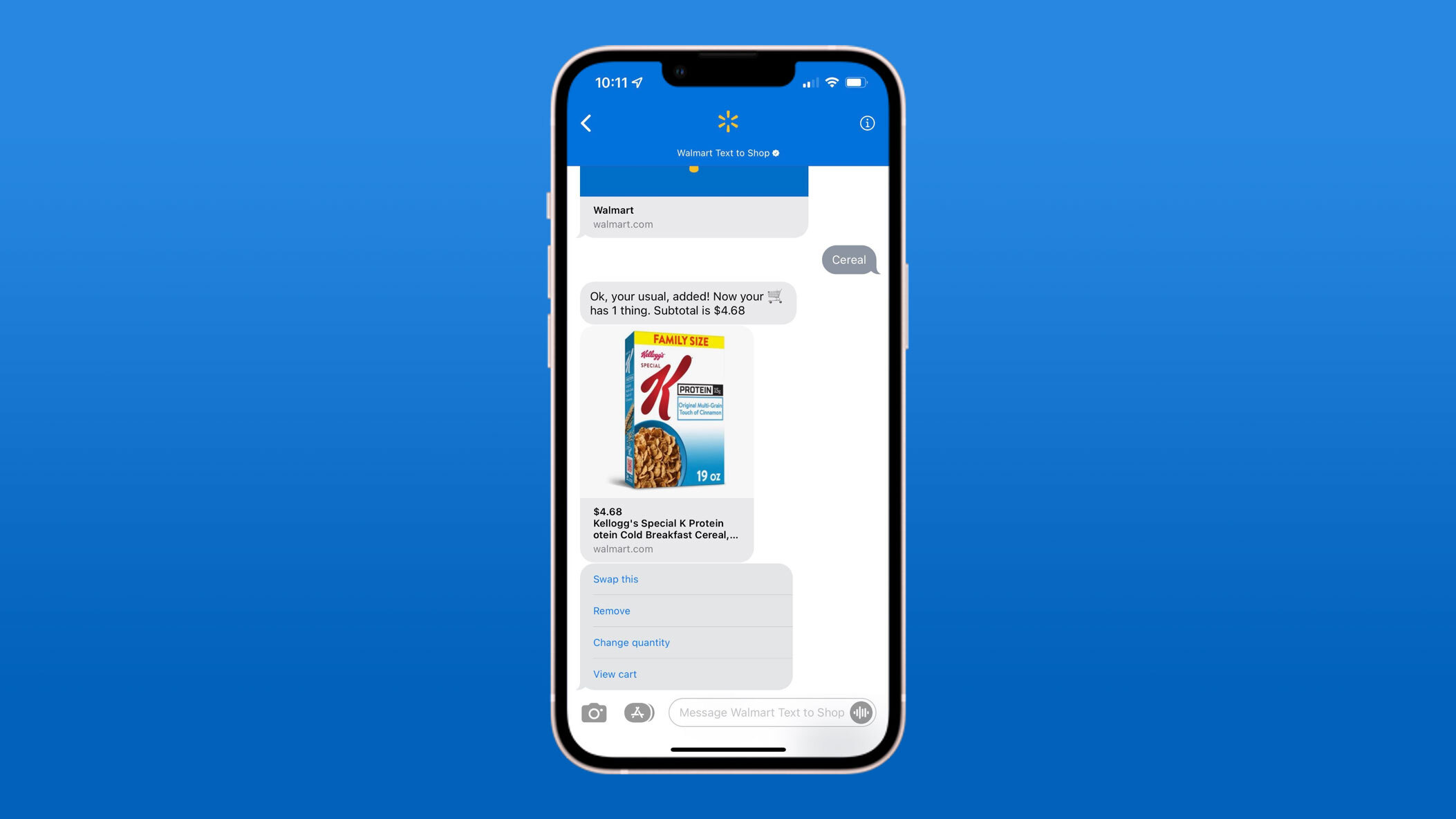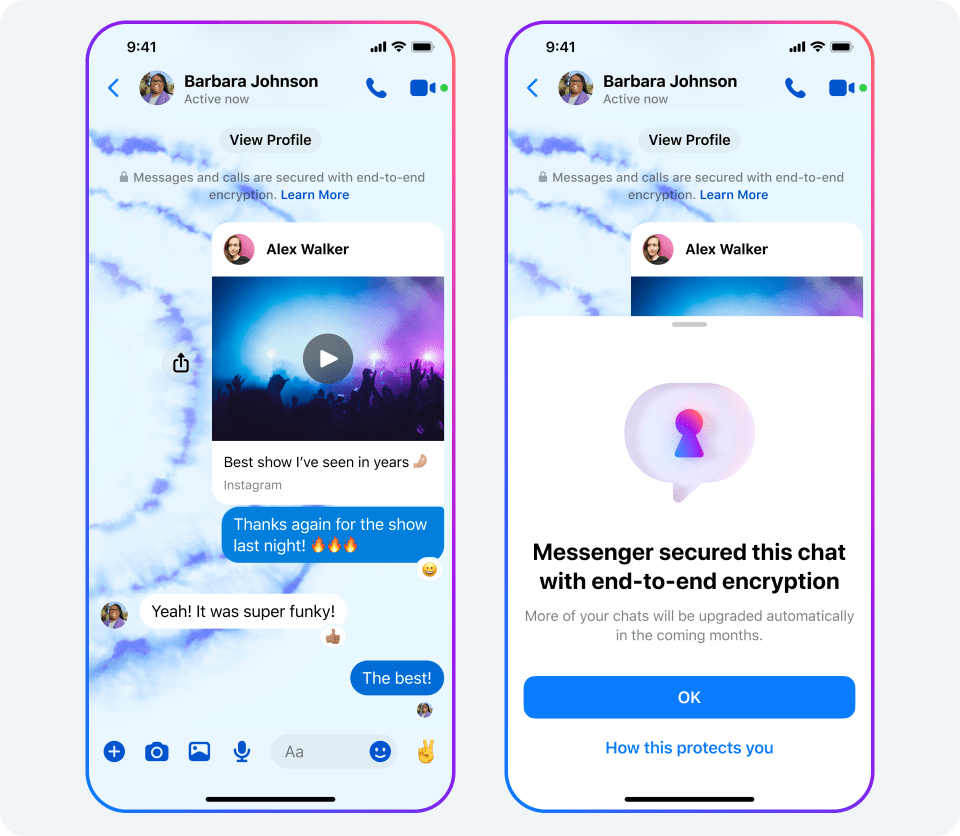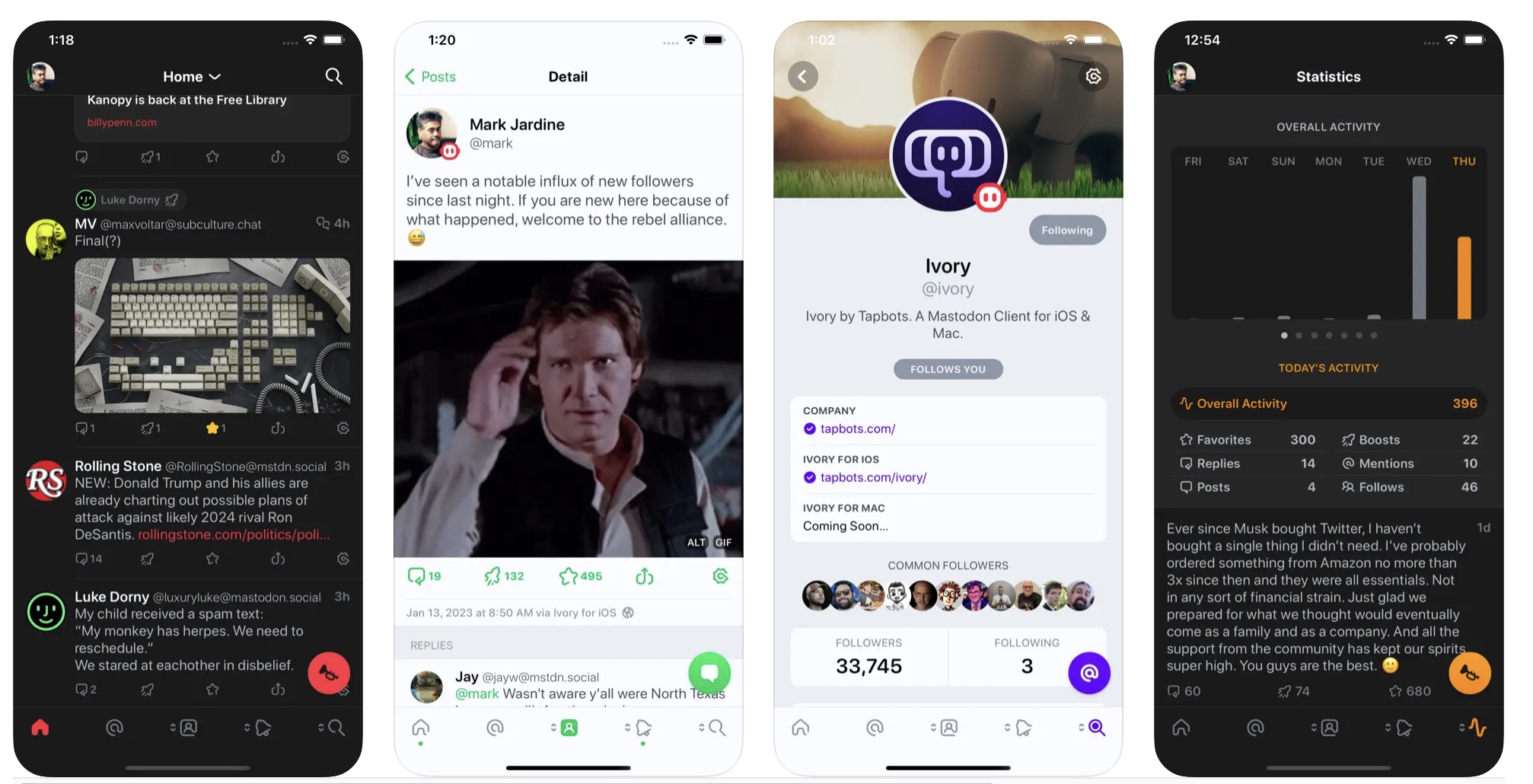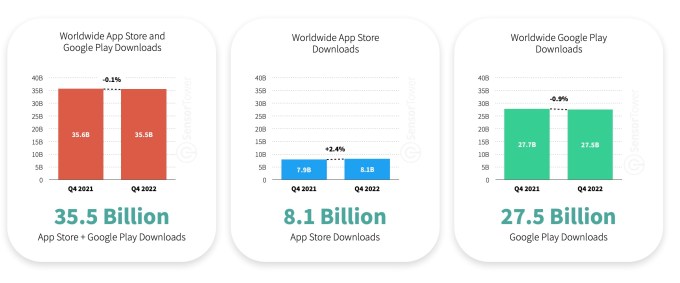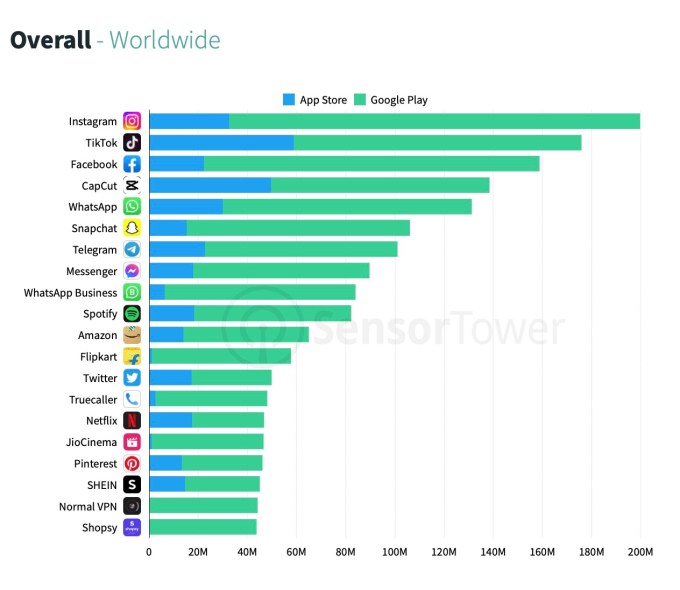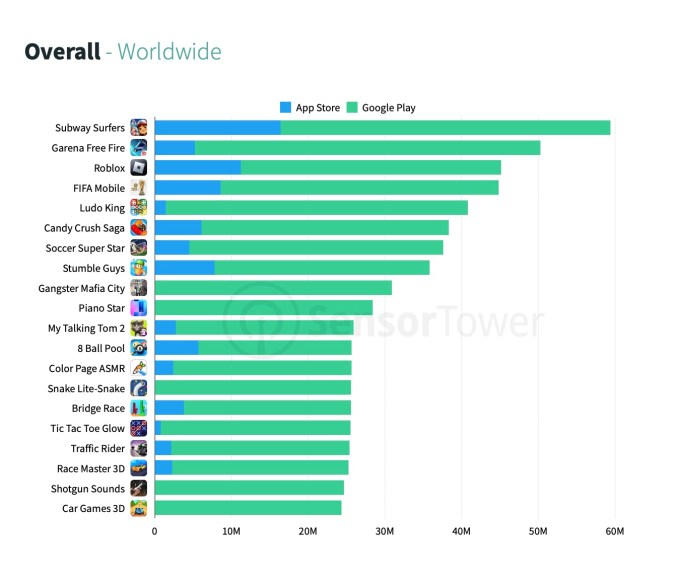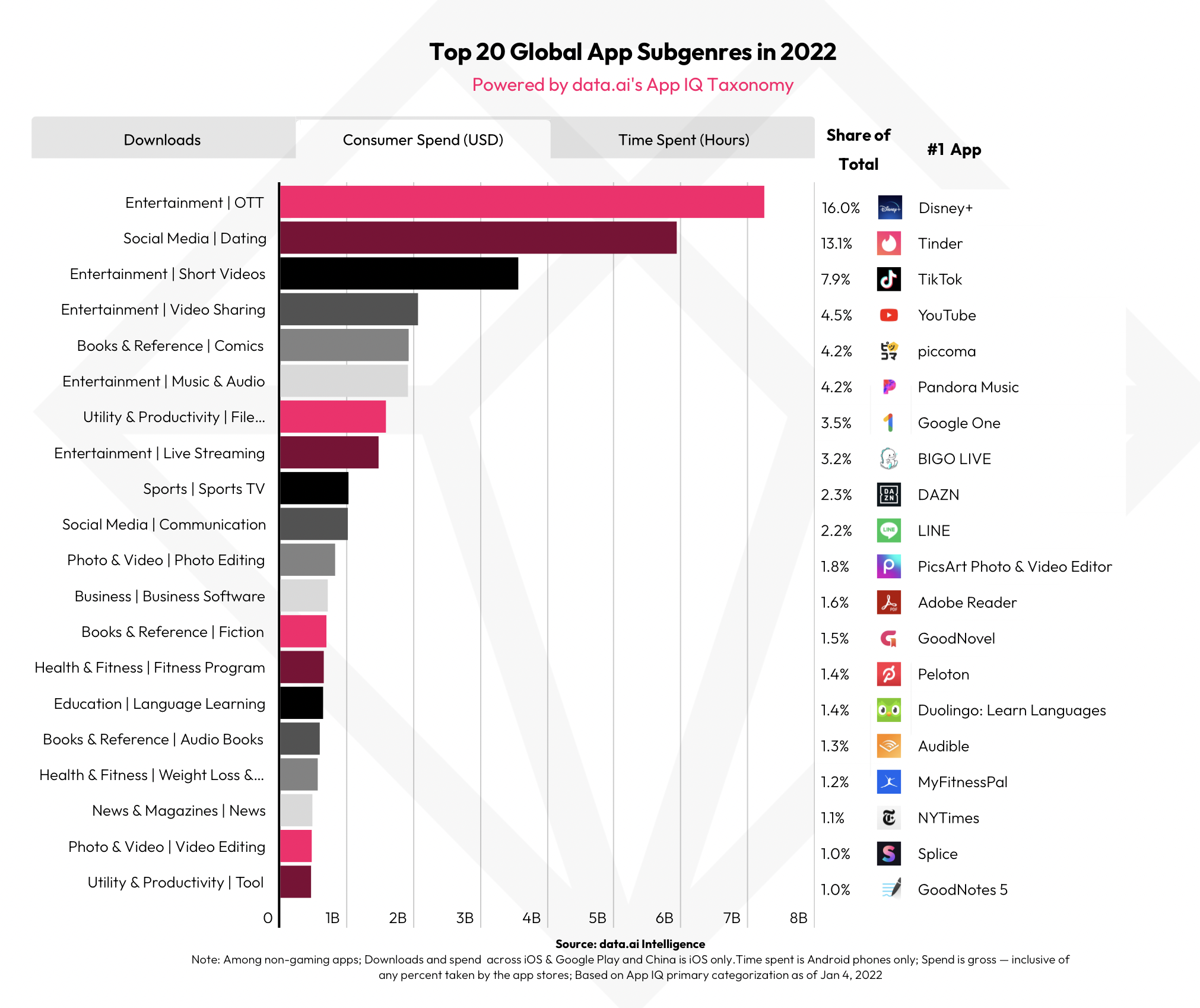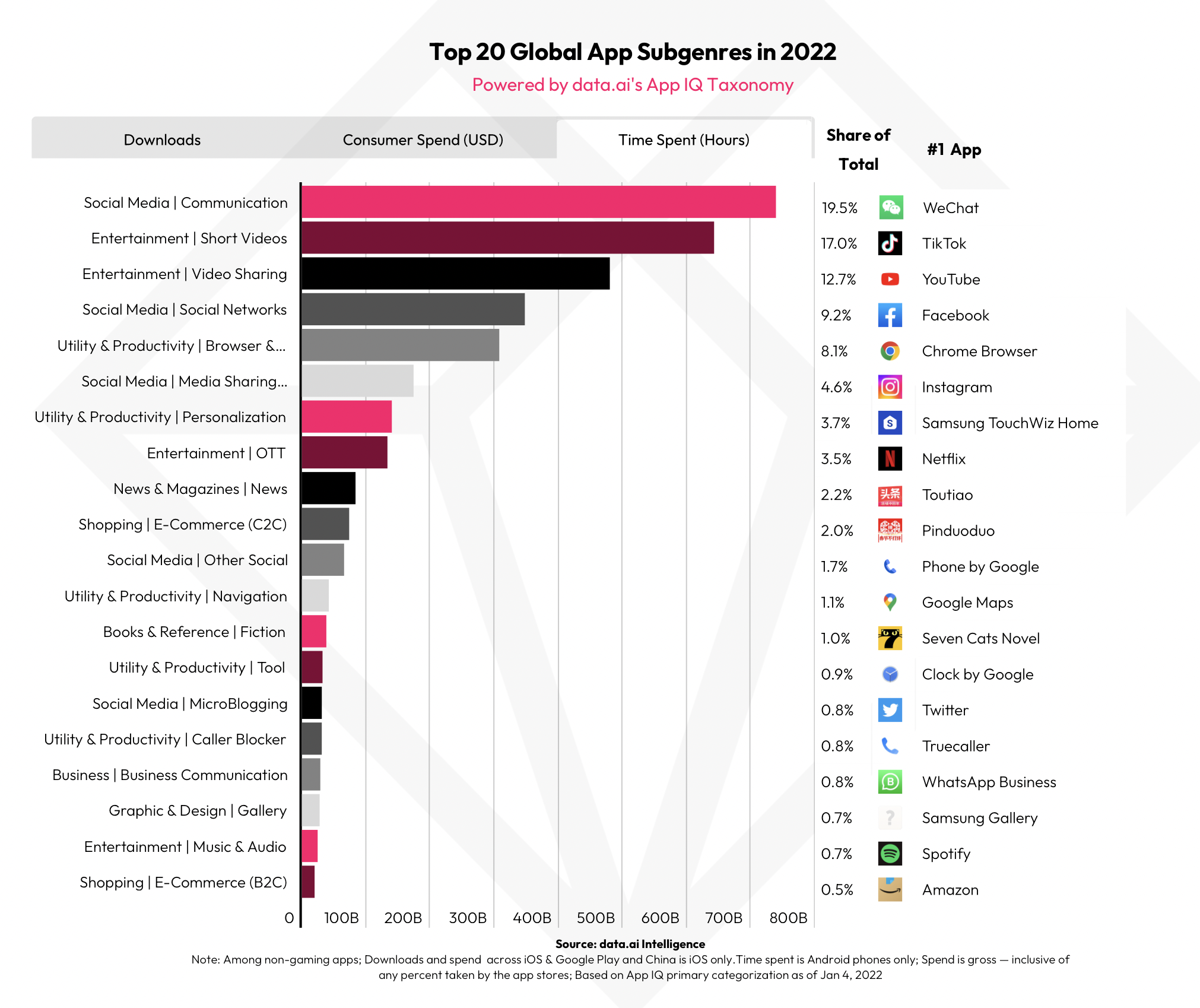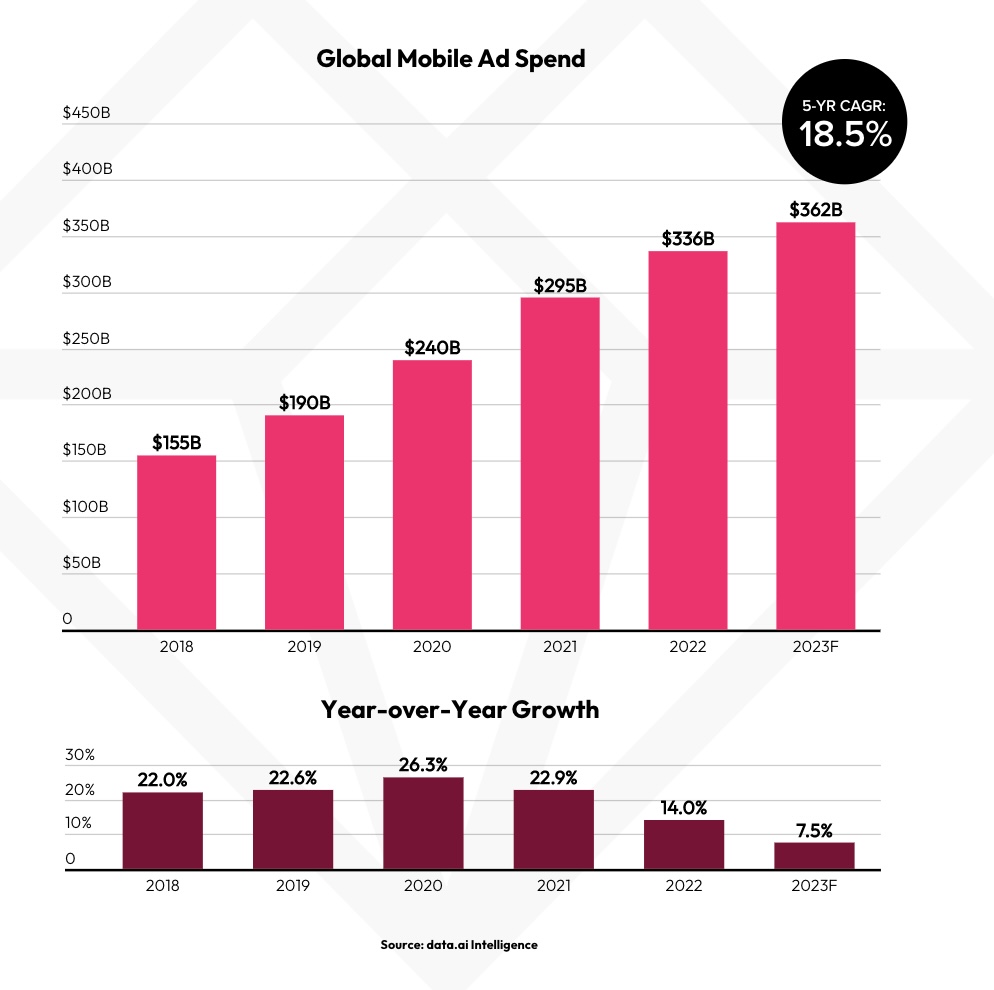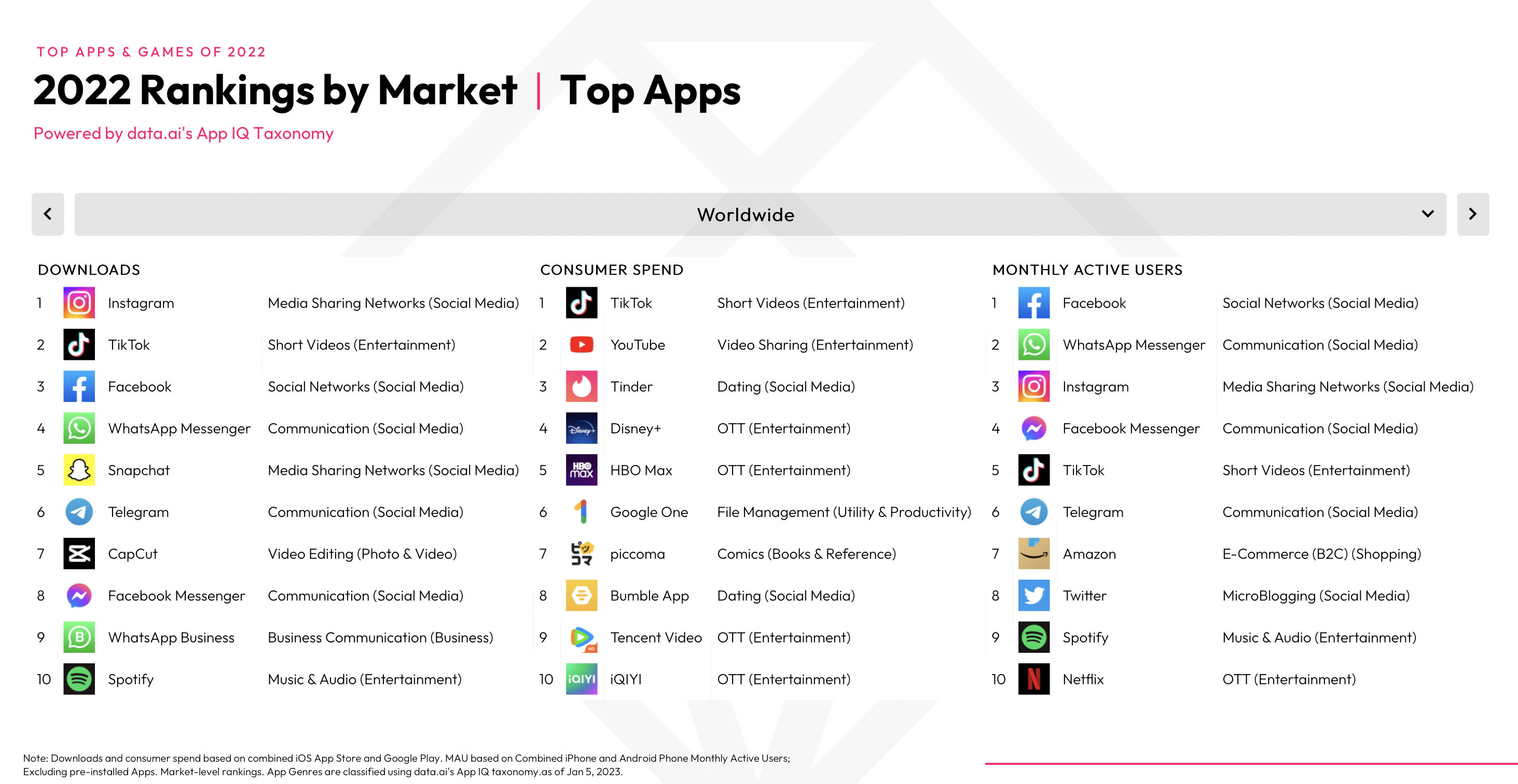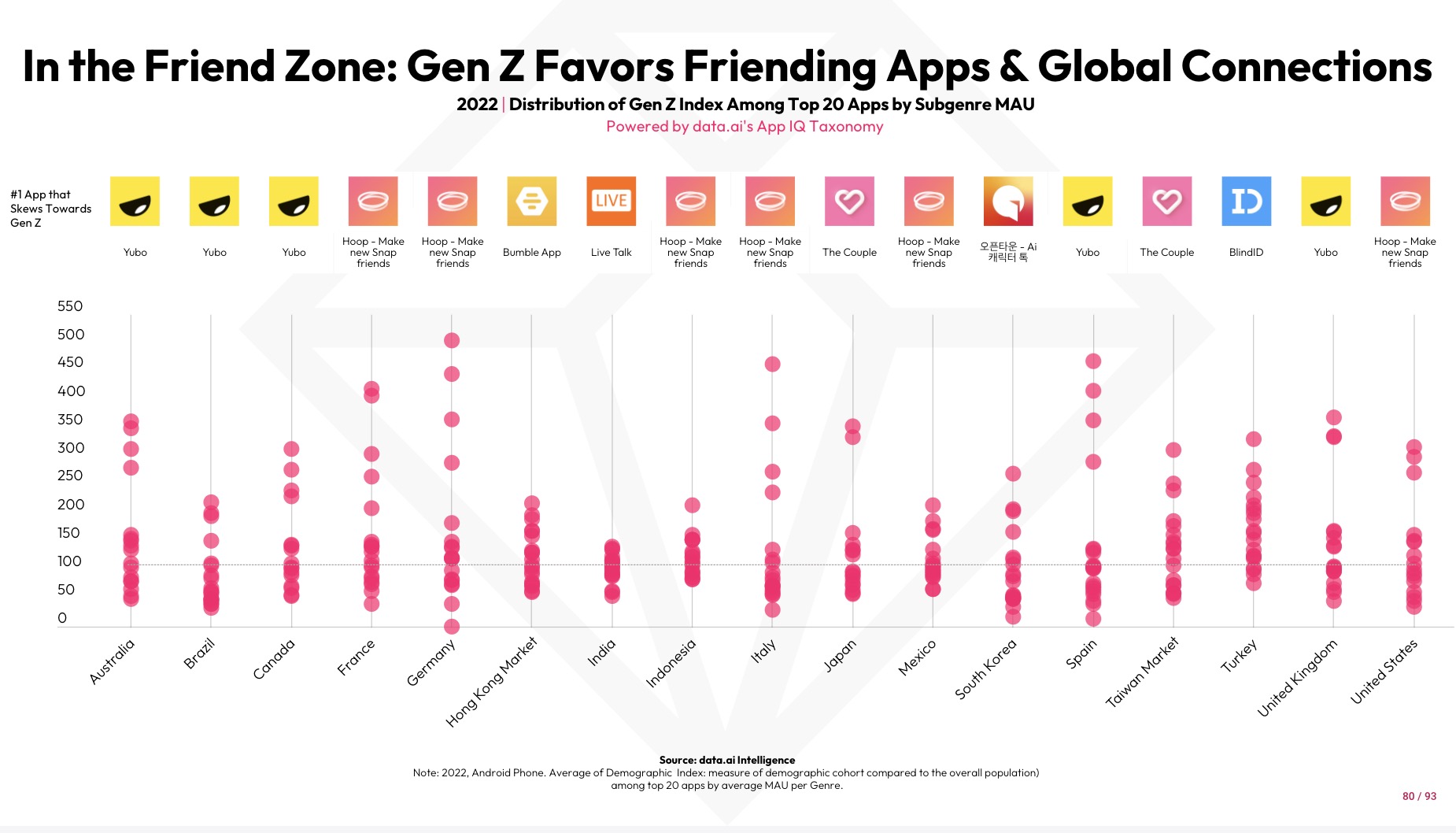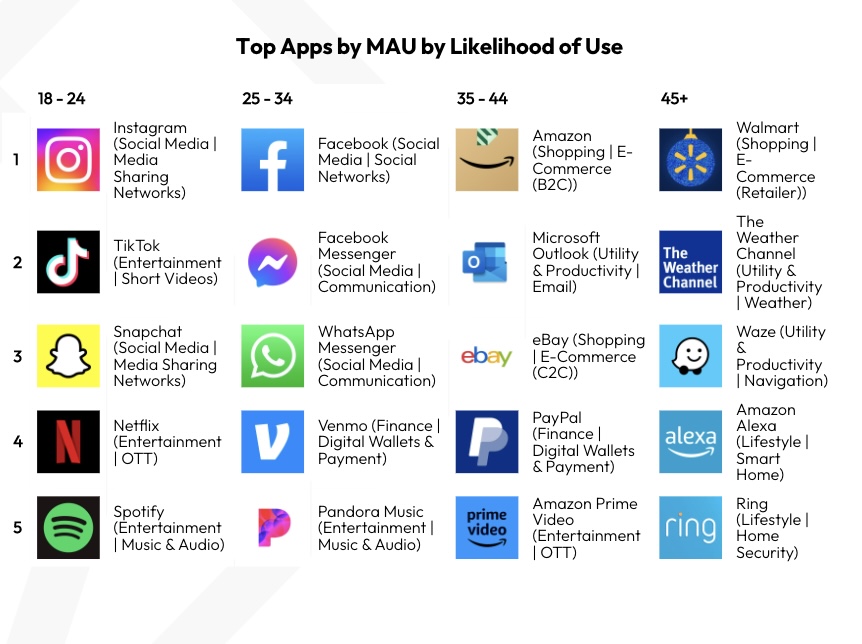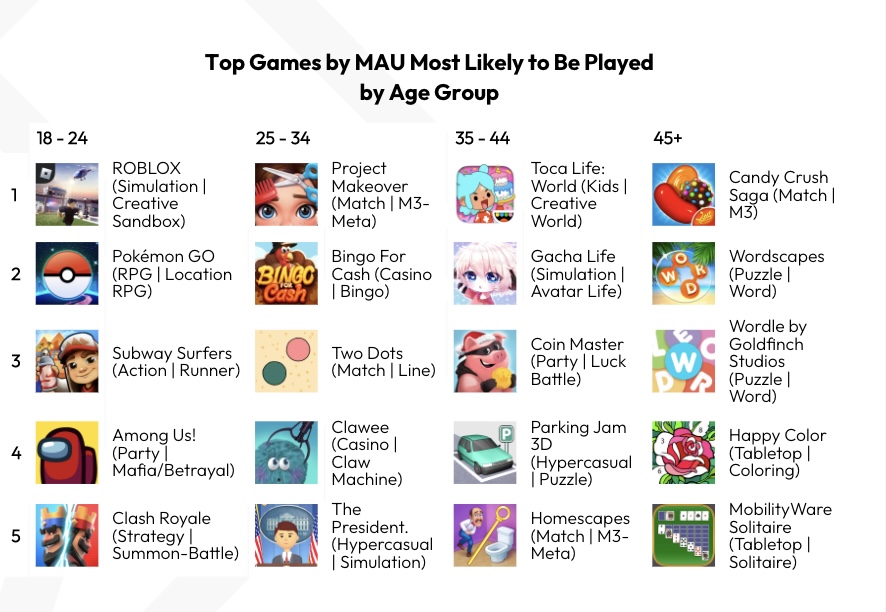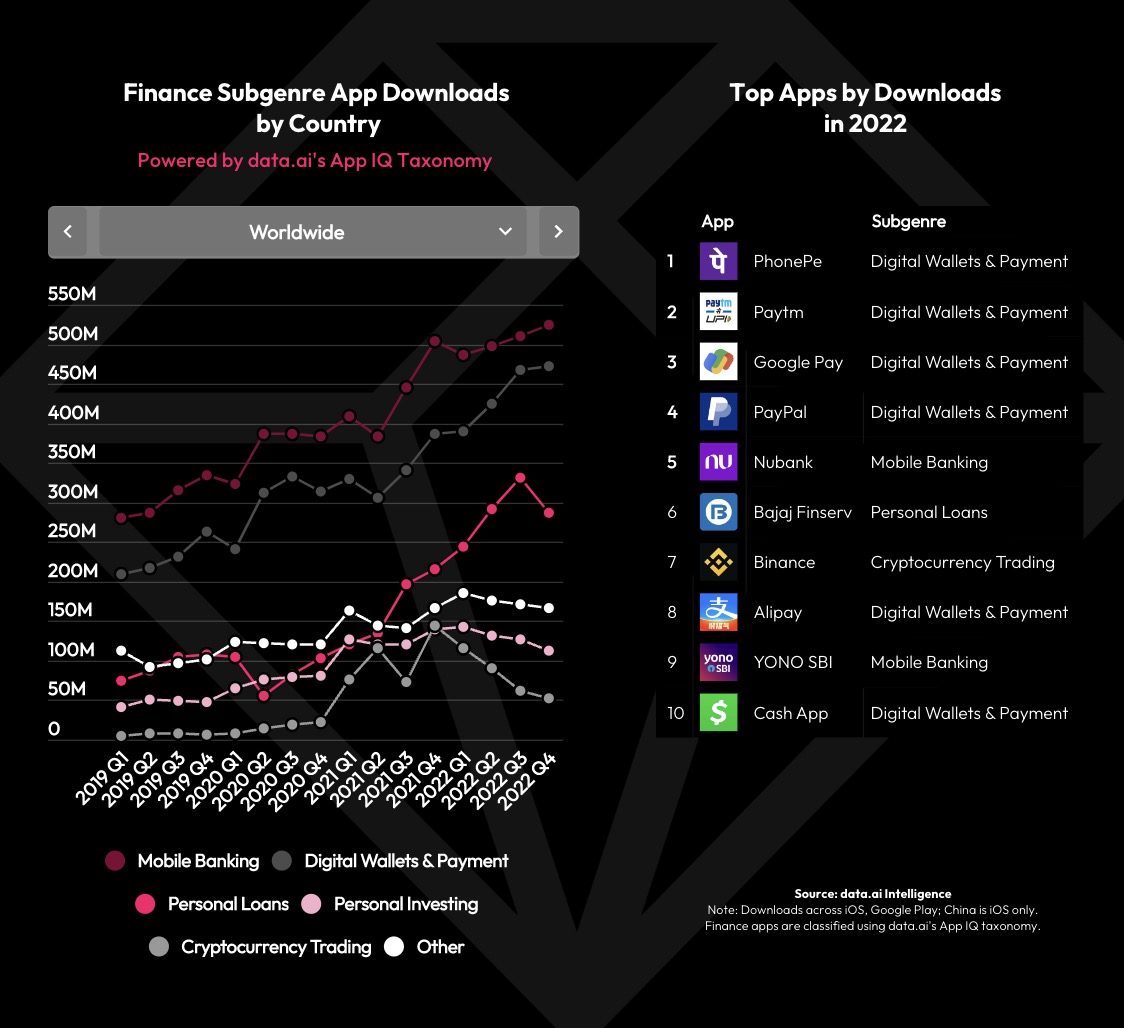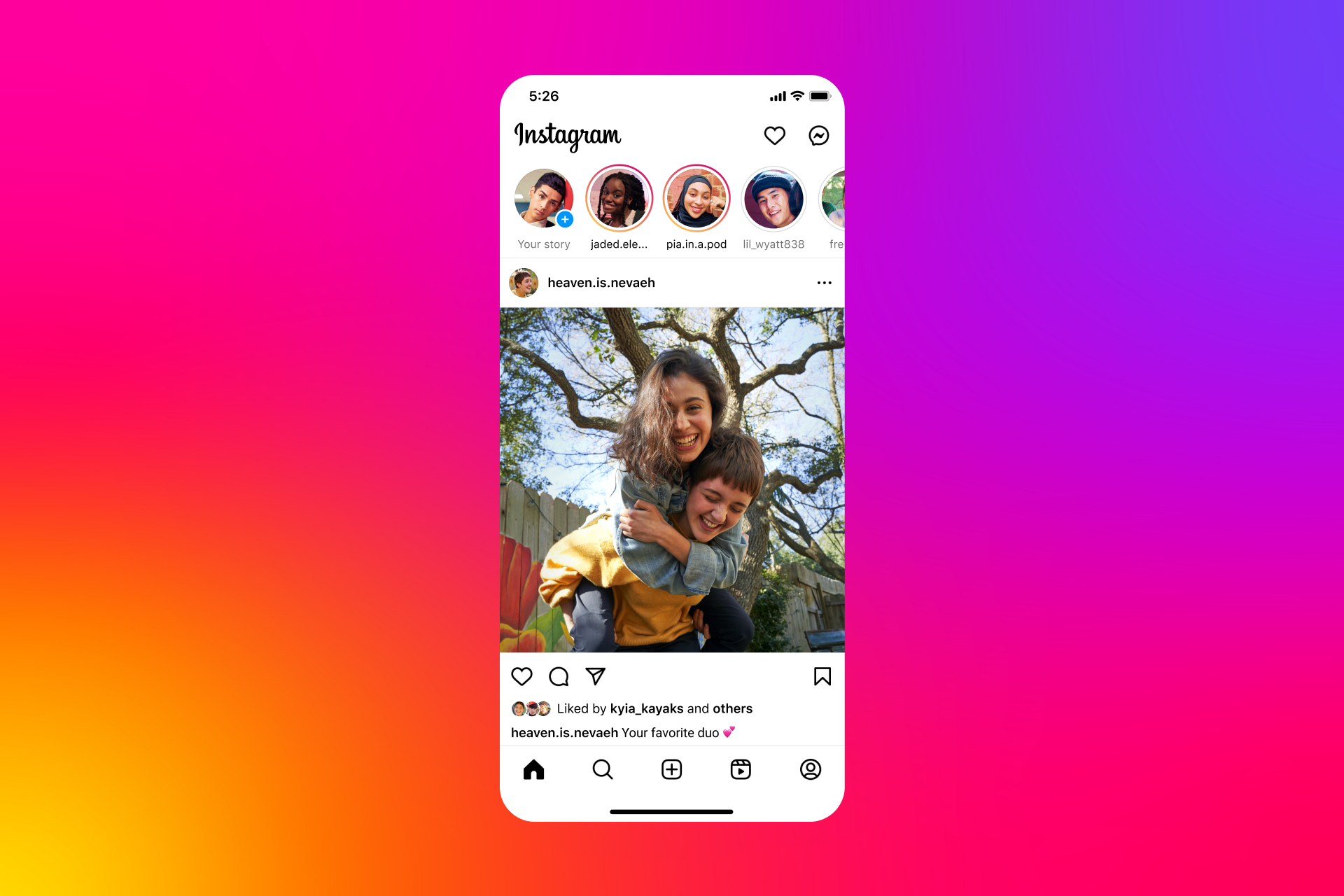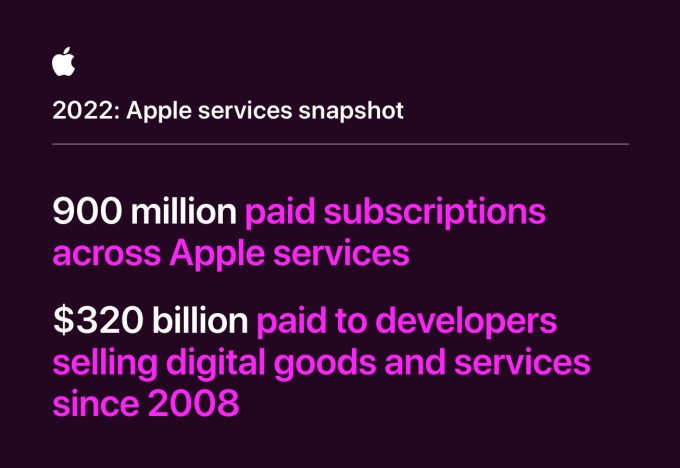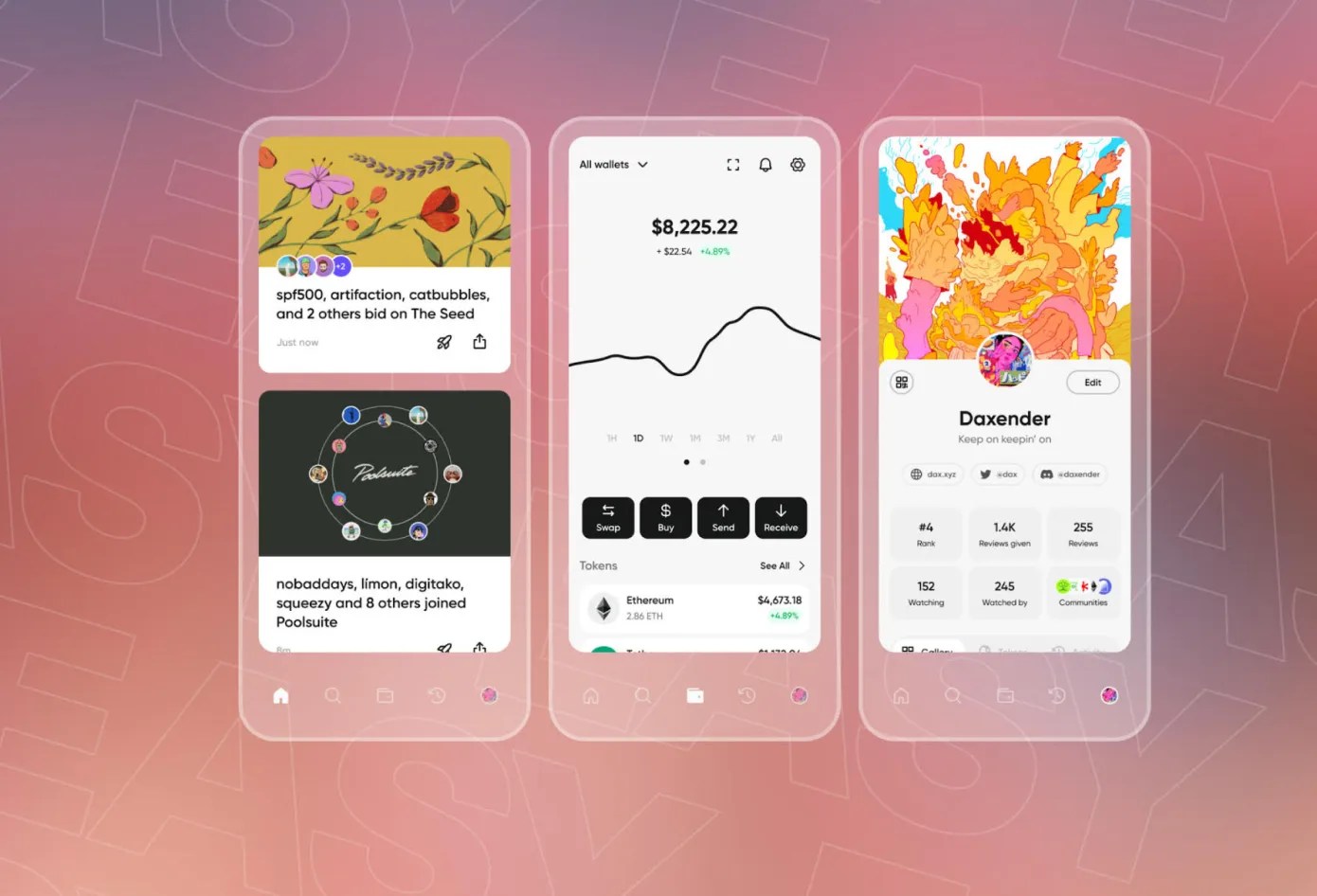Welcome back to This Week in Apps, the weekly TechCrunch series that recaps the latest in mobile OS news, mobile applications and the overall app economy.
The app economy in 2023 hit a few snags, as consumer spending last year dropped for the first time by 2% to $167 billion, according to the latest “State of Mobile” report by data.ai (previously App Annie). However, downloads are continuing to grow, up 11% year-over-year in 2022 to reach 255 billion. Consumers are also spending more time using mobile apps than ever before. On Android devices alone, hours spent in 2022 grew 9%, reaching 4.1 trillion.
This Week in Apps offers a way to keep up with this fast-moving industry in one place with the latest from the world of apps, including news, updates, startup fundings, mergers and acquisitions, and much more.
Do you want This Week in Apps in your inbox every Saturday? Sign up here: techcrunch.com/newsletters
Top Stories
The end of the Twitter app era
It’s incredible how third-party Twitter clients had been able to survive Twitter’s ups and downs over the years, including its various API changes and constantly fluctuating business objectives and policies, only to be unceremoniously killed in 2023 by the whims of a billionaire. This week, in what has been one of the more depressing moments in tech history, longtime Twitter apps like IconFactory’s Twitterific, Tapbot’s Tweetbot and others like Birdie, Fenix, Echofon and many more were unceremoniously cut off from being able to access Twitter’s API and serve their customer base.
Instead of warning developers that Twitter’s policies were changing and giving them time to wind down their operations and communicate with their longtime users and subscribers, Twitter quietly, callously and deliberately revoked their API access. They “fixed the glitch,” so to speak.
Users and developers found out about the change as the apps stopped working, but not because of any official communication from Twitter itself. As backlash and outrage grew, Twitter then made matters worse by trying to gaslight its community about the situation. The company tweeted it was only enforcing its “long-standing” rules, then rushed to update its documentation to reflect what those rules actually were.
Of course, there was a time when Twitter tried to shut down the Twitter app ecosystem: you know, 12 years ago. Following its acquisition of Tweetie, which became Twitter’s own native app, the company in 2011 told developers they should stop trying to compete with Twitter on clients and instead focus on other API use cases, like data and verticals. It was the sort of classic, misguided move Twitter always seemed to make. The company never quite got a grip on the power Twitter had as a platform, and how an ecosystem of tools and apps that worked with Twitter was a better investment of its resources than spending eons trying to do things like tweak the structure of a thread or adding other bells and whistles that users didn’t really care about.
At the time of the proposed shutdown over a decade ago, those Twitter apps had been responsible for 42% of tweets on the platform. While slightly down from the 55% of tweets made in 2009 (or as high as 60% in 2010, another analysis found), the apps still served a large audience of power users that Twitter wanted to simply cut off and walk away from.
As entrepreneur Nova Spivack warned Twitter back then, its failure to incorporate its API into its future plans could ultimately hamper its potential as a company:
I think Twitter’s current strategy may take them in a direction where they end up missing out on their biggest potential win. If Twitter continues to go down the media company path, without incorporating their API into the plan, that could not only force a large part of their ecosystem to go elsewhere, but it could deprive them of a much larger potential infrastructure revenue opportunity, and could even end up costing them the company. After all, Silicon Valley is littered with the burned out wreckage of once-great media companies that failed create and keep third-party app ecosystems: AOL, Friendster, MySpace, Yahoo – to name a few. It’s very hard to maintain leadership as an online media company without an ecosystem of outside apps increasing reach, innovation, and stickiness.
He was right. Twitter over the years struggled to grow its daily active user base, even making up its own metrics, and trying to convince Wall Street that its business should be evaluated by something besides user growth. It didn’t work.
Twitter historically often ignored the innovation emerging from its ecosystem of apps, even as those apps contributed meaningfully to what Twitter would become. Twitterific coined the word “tweet,” was the first to use the bird icon and delivered the first native Mac and iOS apps, among other things. Tweetie introduced the pull-to-refresh gesture. Brizzly made it possible to tweet photos, long before Twitter did. And all, arguably, demonstrated the market for premium apps (Tweetbot for Mac was $20 in 2012!) and app subscriptions, despite arriving at a time when Twitter’s focus was on cramming ads into its timeline — something that was once dubbed its #dickbar feature.
The company could have found an altogether different trajectory if it had embraced the innovation taking place in the broader app ecosystem, instead of constantly trying to squash it. Twitter users for years had no choice but to sit back and watch as their favorite third-party apps were slowly pruned. Long before TikTok, an app that began as a “video Twitter,” Seesmic, had to exit back in 2012. Favstar, a popular app for tracking top tweets, closed up shop in 2018. Twitter acquired TweetDeck, then abandoned it, despite surveys that indicated users would be willing to pay for premium features and subscriptions. Twitter almost seemed to revel in destroying various parts of its ecosystem. It bought Vine (a TikTok precursor) and Periscope (an early livestreamer), and killed them. (And when Twitter managed to come up with creative ideas of its own — like a music discovery app called #Music — it would give up on them, too. Now music discovery takes place on TikTok.)
Despite its fumbling, third-party Twitter clients managed to survive and even thrive, thanks to dedicated user bases, all while the company kept tweaking its API to make them less useful. In 2018, for example, the app makers told their customers they would have to disable or degrade certain features. And yet, the apps’ customers remained.
Now, at a perilous time in Twitter’s history — when analysts are predicting it will lose some 32 million users by 2024 — Twitter is removing access to some of its most beloved entry points to its ecosystem. And while these clients may not be the powerhouses of a decade ago, they deserved the opportunity to close up shop in a dignified manner that reflected the impact they had on Twitter’s own history and community.
What’s ironic here is that Twitter in more recent years almost seemed as if it was trying to right the ship. It was revamping its API and bringing back its developer conference. Its head of product for the developer platform, Amir Shevat, understood the potential. The company was beginning to spin up in-Twitter apps users could interact with and was even toying with ideas around a Twitter app store. But his team was cut from 100 people to two amid the Twitter layoffs, signaling the end of Twitter’s platform ambitions. And, we should have realized then, the end of the Twitter ecosystem of apps, too.
As Shevat warned in December: “Let this be my personal notice to Twitter developers: The team is gone; the investment has been undone. Love does not live here anymore.”
Trial set in Epic & Match’s antitrust case against Google
A date has been set for a trial by jury in a significant antitrust case against Google involving its alleged abuses of power in the Android app market. Fortnite maker Epic Games and dating app giant Match Group, joined by more than three dozen state attorneys general, have accused Google of unfairly leveraging its market dominance and harming competition through its Google Play Store terms and practices. In particular, the plaintiffs take issue with the commissions Google requires on app sales and in-app purchases as well as the control Google has over Android app distribution in general. The case will now proceed to a jury trial on November 6, 2023, a judge in the Northern District of California has ruled.
Epic and Match filed to amend their complaint in October by adding new antitrust counts to their case. Google in October asked the court to disallow these requests, saying, among other things, the claims were filed too late. (The court granted the motion to amend the complaint in November.)
The Android ecosystem antitrust case is a bit different from the Epic-Apple battle because Google allows Android apps to be sideloaded. The app makers will instead aim to prove other ways the company leveraged its market power — like paying developers to not leave the Play Store, for instance.
In a more recent hearing related to this case, a California federal judge criticized Google for not preserving evidence from employee chats, after learning internal communications were taking place in Google Chat, where messages were automatically deleted after 24 hours. Though employees can change the auto-delete setting, Google apparently did not enforce this setting to be turned on. The U.S. District Judge James Donato asked the parties how many of the 260 Google employees who received a litigation hold notice had chosen not to preserve their chats, according to a report from Law360.
The judge also threatened Google with a “substantial, trial-related penalty” if the court found evidence related to the trial was destroyed. This should be an interesting trial to watch, it seems.
Instagram adds a “Quiet Mode”
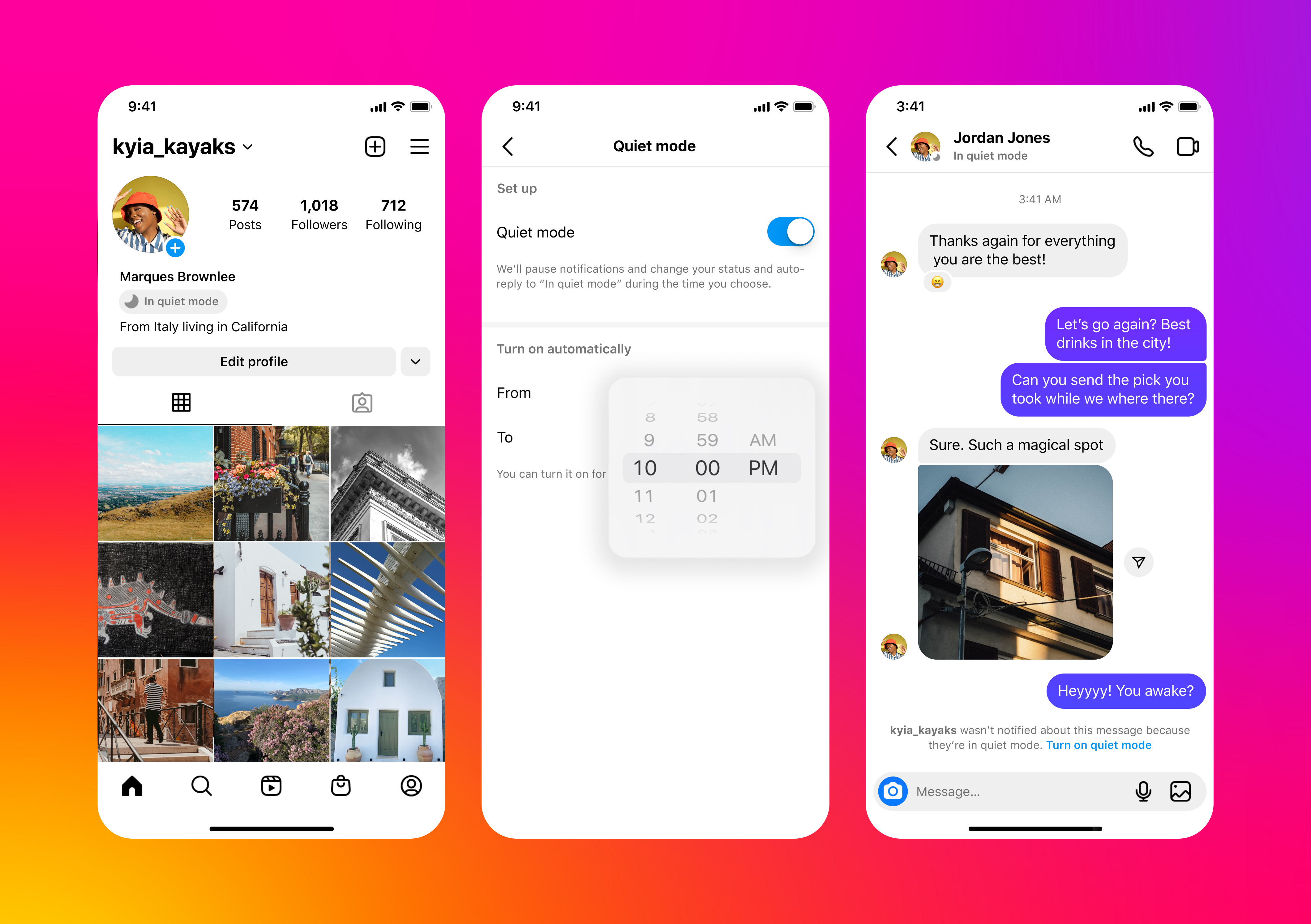
Instagram announced this week it’s expanding its selection of time management tools with the launch of a new feature called “Quiet Mode.” The feature aims to reduce users’ anxiety about taking time off from the app by silencing incoming notifications, auto-replying to DMs and setting your status to “In Quiet Mode” to inform friends that you’re not active on the app at present. The company said it will prompt teen users to enable the feature if they’re using the app late at night.
With the new Quiet Mode feature, the app is aiming to address the real-world impacts that accompany trying to step away for a bit from an app that you regularly use — and one where others expect you to be available.
The launches come as Instagram works to make its app less of a target for regulators and lawmakers who have been concerned with social media’s potential harms, particularly for teenage users. To date, Instagram has added several teen safety features, including those to protect teens’ privacy and reduce unwanted adult contact, limit ad targeting, restrict teens’ access to mature content and others to help parents monitor and manage their teens’ Instagram use through parental controls.
The update is one of several changes that rolled out, which also included tweaking its parental control tools and adding other tools to manage recommendations. For example, you’ll now be able to remove things from your Explore page and block terms from influencing your recommended content, too.
Weekly News
Android Updates
- Google fixed the issue that led to missing app changelogs on the Play Store’s website.
- Google’s clock app for Android now lets you record your own alarm sound. That could be fun. (Also ripe for pranks).
Apple News
- Apple seeded the release candidates (RCs) for iOS 16.3, iPadOS 16.3, tvOS 16.3 and watchOS 9.3. The release signals the public version is now likely days away.
- The iOS 16.3 public release will bring the new iCloud Advanced Data Protection feature to users worldwide. The opt-in feature offers end-to-end encryption for nearly all iCloud data, including messages, photos, device backups and more.
- Apple commemorated Black History Month with exclusive content, including a special-edition Apple Watch Black Unity Sport Loop, a new matching watch face and iPhone wallpaper.
- Apple is reportedly working on an iPad-bases smart display with smart home controls, FaceTime and video support. It’s also developing a faster Apple TV, reported Bloomberg.
Gaming
- Roblox’s estimated bookings grew 17-20% year-over-year, to $430 million-$439 million and daily actives jumped 18% to 61.5 million, Roblox said in its December 2022 metrics report.
- Google officially shut down its cloud gaming service Stadia this week, only two months shy of its third birthday. Though Stadia users were disappointed, Google did do some things right by offering both hardware and software refunds, save game transfers and more.
- 45% of game developers said they don’t believe in the promise of the metaverse, a new industry survey shows.
- Nintendo is increasing production of its six-year-old Switch console starting in April 2023, as consumer demand remains strong.
Entertainment
- Netflix made waves with the news that its founder and co-CEO Reed Hastings would step down after two decades of running the company. The news came on the heels of solid earnings, where the company reported adding 7.66 million subscribers, jumping to 230.75 million globally, and revenue of $7.85 billion, in line with estimates.
- Netflix also gave its iPhone app a makeover. The revamp included a new billboard layout, new card transitions, new animation for both the launch and profile screens, updated haptics and more.
- Wattpad Webtoon Studios signed with talent agency UTA for worldwide representation. The deal aims to help the global entertainment and publishing arm of Webtoon and Wattpad as it further expands into TV, movies, animation and more.
- YouTube TV refreshed its Live Guide and Library with a new design and the addition of recommendations on what to watch.
- Audio chat room app Clubhouse brought its “House Lounges” to the web. The always-on feature allows users to catch up, message and hang out with friends in private rooms. The feature first launched on mobile.
- TikTok expanded the reach of its “state-controlled media” label to more than 40 additional countries, to alert users when videos they’re seeing on the app are being published by entities whose “editorial output or decision-making process” is subject to influence by a government.
- Spotify, Deezer, Proton, Basecamp and others wrote a letter to the EU’s antitrust regulator’s Executive Vice-President Margrethe Vestager, urging the Commission to take action against Apple over antitrust practices. The Commission has been investigating the claims for years, following Spotify’s filing of an antitrust complaint in 2019.
- Amazon is increasing its Amazon Music Unlimited’s monthly prices by $1 and £1 to $10.99 and £10.99 in the U.S. and U.K. on February 21. The new prices will match the increase Apple Music implemented last fall.
Security & Privacy
- Period tracker Flo added an “anonymous mode” that lets users track their period without providing their name, email or other identifiers. Period tracker privacy has become a hot-button topic following the reversal of Roe v. Wade, as app users are worried how their private data could be used against them.
Twitter Drama
- Twitter launched an annual subscription for Twitter Blue that costs $84 per year, but is only available on the web. The subscription saves users 12% over a monthly web subscription or 36% over an iOS subscription, where the price is jacked up to cover App Store fees.
- The next day, it launched Blue for Android users, at the same pricey $11 per month it charges iOS users. The subscription is $3 per month cheaper on the web.
- Twitter killed off third-party clients, claiming it was only enforcing its long-standing API rules. But internal messages showed Twitter targeted the clients specifically, impacting classic apps like Tweetbot, Twitterific and others.
- A reverse engineer claims Twitter could be working on a video chat feature, based on findings in the app’s code.
- An ad industry leak indicated that Twitter’s fourth-quarter revenue had fallen 35% year-over-year to $1.025 billion, or 72% of its Q4 goal. It expects to earn $732 million in the first quarter this year, which would be down by 39% year-over-year.
- Twitter’s referral traffic to 12 major news outlets fell 12%, on average, from November to December 2022, per Similarweb data. The only two outlets that gained during this time were Fox News and NY Post.
Etc.
- Fintech Robinhood tapped tech editor Josh Topolsky to run Sherwood Media, an independent brand that will serve as the home to Robinhood’s Snacks newsletter.
- Dating app Hinge is testing a $50-60 per month premium tier, its equivalent of Tinder Platinum.
Layoffs
- Music app SoundHound laid off around 200 people, or nearly 50% of staff, with two weeks of severance that will only be paid if the company raises more money.
- Fandom laid off staff across its properties, including GameSpot, Metacritic and Giant Bomb. Most of Fandom’s properties are websites, but it also runs a Fandom News app for mobile devices.
- In addition to the Big Tech layoffs this week impacting Google (12,000 people), Amazon (18,000 people) and Microsoft (10,000 people), Amazon-owned comics publisher and distributor ComiXology laid off around 50% of staff, as well. The company offers an app that allows users to experience 23,000 comics, manga and graphic novels on mobile devices.
- Indian food delivery service Swiggy is cutting 380 jobs after raising $700 million in January 2022. The company has around 6,000 people employed.
Government & Policy
- The U.K. Online Safety bill was amended to make senior execs criminally liable for their companies’ failure to protect minors from harmful content.
- India’s Supreme Court declined to block an antitrust order that would require Google to change its Android business model, in a major setback for the tech giant. The Competition Commission of India ruled in October that Google exploited its market power by forcing device makers to pre-install Google’s apps. It had also fined Google $161 million. Google said it will challenge the ruling but will cooperate with the authorities “on the way forward.”
- Meta’s WhatsApp has been fined €5.5 million (just under $6 million) for failing to comply with the European Union’s General Data Protection Regulation (GDPR) rules around data processing.
- Brazil’s antitrust regulator, CADE, is now investigating a complaint against Apple over alleged App Store antitrust issues, similar to investigations by other antitrust authorities in other markets.
- More TikTok bans cropped up in the U.S. Following crackdowns by numerous state governments, the video app has been banned on some college campuses, including Texas A&M University and the University of Texas at Austin, as well as Arkansas State University, the University System of Georgia’s dozens of universities and colleges, the Montana University System and Boise State University, NBC reported. Some experts believe the bans, which now reach more than two dozen U.S. states, are an overreaction.
- China’s government gave Didi the right to republish its apps on app stores after more than a year in regulatory limbo.
Funding and M&A
- Discord bought teen compliments app Gas for an undisclosed sum. Gas is an anonymous app that sent teens compliments purportedly from their peers. Founder Nikita Bier previously sold his app tbh to Facebook.
- Another teen compliments app, Slay — this one based in Germany — raised a $2.63 million (€2.5 million) pre-seed funding round led by Accel. Other investors included 20VC, Supercell co-founder and CEO Ilkka Paananen, Behance founder Scott Belsky, football star Mario Götze, Kevin Weil (Scribble Ventures) and musician Alex Pall (The Chainsmokers).
- Chinese fast fashion shopping app Shein is said to be raising up to $3 billion from Abu Dhabi’s sovereign wealth fund Mubadala, Sequoia and PE firm General Atlantic, at a $64 billion valuation, the FT reported. That would be down from its $100 billion valuation as of its last funding round in April.
- Walmart-backed Indian payments app PhonePe raised $350 million from General Atlantic at a $12 billion+ valuation, and plans to raise as much as $1 billion in tranches.
- Zitti, an app offering food costs and other insights for restauranteurs, raised $3.5 million in a seed round from Oceans Ventures, Serena Ventures and Crossbeam. In total, the company has raised $7.5 million to date.
- Cloud services provider Shadow made its first acquisition with a deal for French Android emulation startup Genymobile, the company behind Genymotion. Deal terms weren’t disclosed.
- Share Creators, a platform that helps game developers store and manage large media assets, raised $5 million in funding, including $3 million from China’s 5Y Capital and $2 million from PDF reader Foxit.
Downloads
Smores

Image Credits: Smores
This week, TechCrunch’s Ivan Mehta took a look at a new iOS app, Smores, that allows users to discover new music through a TikTok-like feed. The app lets you listen to a short clip of a song, recommended based on your own listening history. You can then swipe through the vertical feed to skip to the next song clip, or like the current song with the heart button, which saves the like to your Spotify account. The liked tracks will appear in a new playlist called “Smores Discovery,” or you can add the track to another pre-existing playlist if you choose. The team says they may later bring the app to Apple Music or Android users.
Ice Cubes
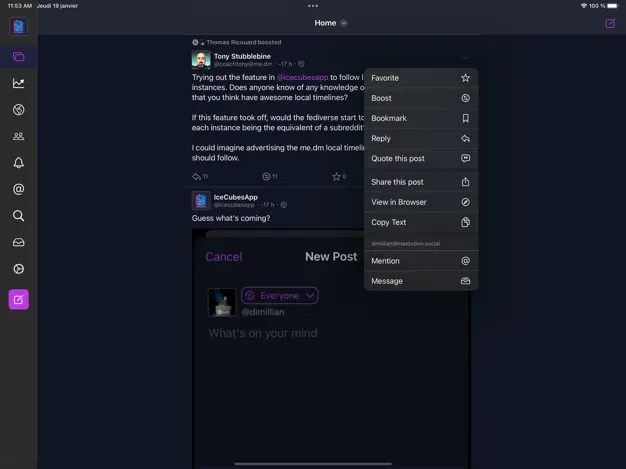
Image Credits: Ice Cubes
This new Mastodon client for iPad, iPhone and Mac was oddly rejected from the App Store numerous times on its path to launching, as Daring Fireball highlighted, but the SwiftUI app from developer Thomas Ricouard looks like a solid addition to the Mastodon app ecosystem, which includes several new apps built by former Twitter app makers, including apps like Ivory from Tapbots and Mammoth from Aviary’s app developer. (Both are still in TestFlight.)
Ice Cubes, however, promises to bring a fast and reliable Mastodon experience to the desktop, allowing users to browse their timelines, interact with posts (“toots”) and even quote toot — a feature Twitter expats have been missing. You can also access more advanced functions like lists, filters, an explore tab and more.
This Week in Apps: Twitter kills third-party apps, Instagram adds Quiet Mode, Google’s antitrust trial gets a date by Sarah Perez originally published on TechCrunch


